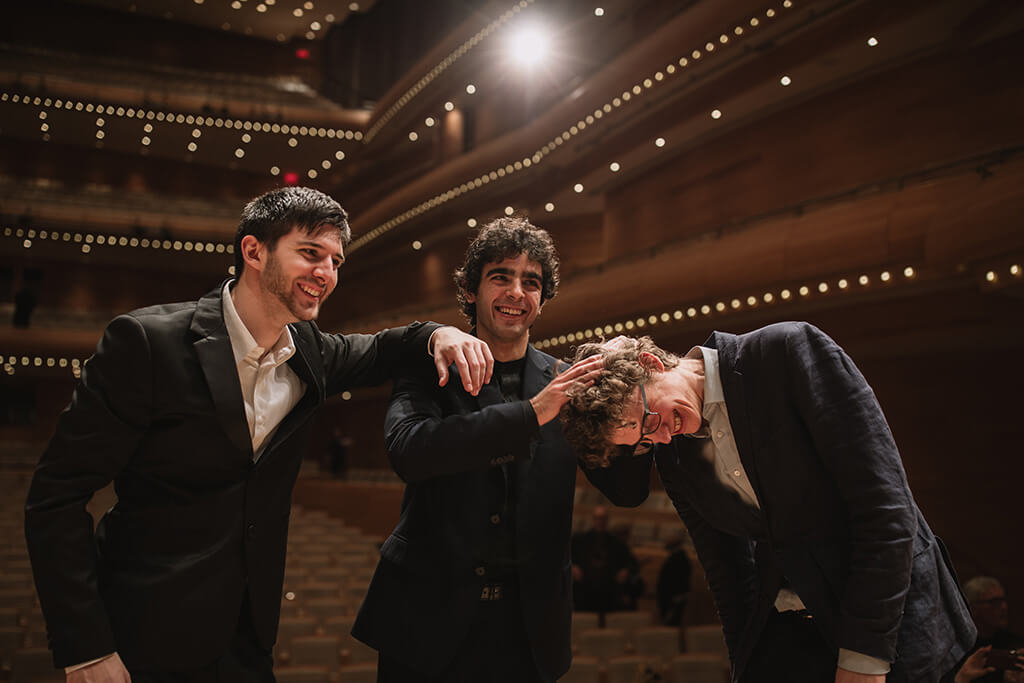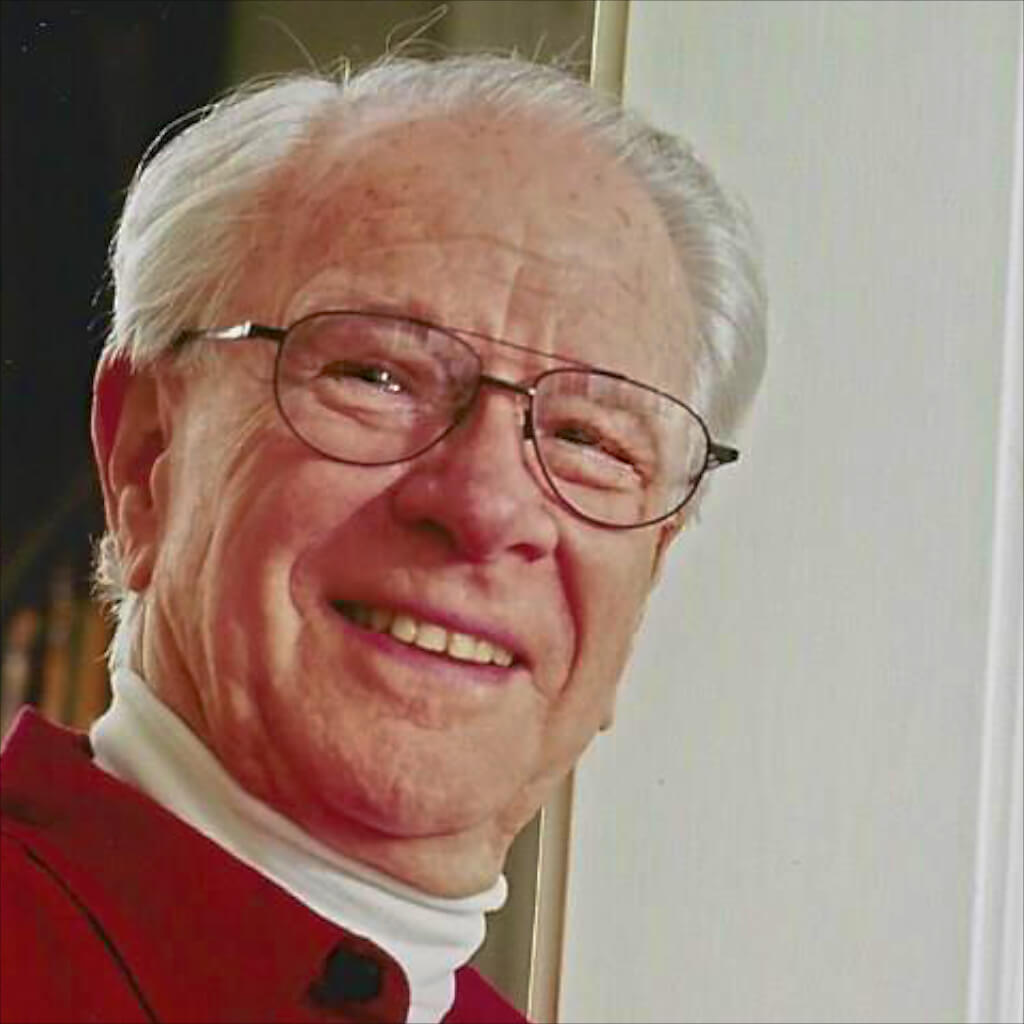
This year’s Montreal International Music Competition (MIMC) drew to a close last Friday in a gala concert that showcased the Competition’s 15-year history to the world. As the city concurrently played host to the FIM International Orchestra Conference and the World Federation of International Music Competitions, the Maison Symphonique welcomed the two international classical music assemblies to the evening featuring MIMC winners past and present, alongside a sizeable audience of competition enthusiasts.
Montreal was in good company, and by all accounts, everybody was in good spirits. Giuseppe Guarrera certainly made the most out of his time at the MIMC, scooping up all the Competition’s special prizes in addition to his second-place finish. Not bad for his first time outside Europe! The native of Enna, Italy has spent the last three years in Berlin, which offers plenty of musical resources: “it is a special city for music. There are nine orchestras, three music schools, like conservatories, so it’s just very difficult to compare with any other cities in the world.” Any parallels he draws with Montreal are favourable: “I found it a very nice audience. And the Maison Symphonique is very incredible, the acoustics also.”
Guarrera’s performance of Tchaikovsky’s first piano concerto certainly sounded incredible inside the concert hall. As it turns out, pianist and composer share part of the same musical heritage: Guarrera had studied with Russian teachers for nine years. Upon hearing that he had assumed the musical personality of a Russian, Guarrera lit up: “I’m glad about this comment, it’s basically what I want to do with the concerto. Obviously, technically it’s challenging to play well, to find the right lyricism, the Russian character.” As an optimistic Italian, was it hard to reconcile the two approaches? “That’s a bit hard; I’ve been working on it. Sometimes I feel that some rubati are a bit more Latino style. I’m thinking you really understand the pianist is playing his own music if the reaction to the rhythm is natural.”
For soprano Measha Brueggergosman, her performance at Friday’s gala was a sumptuous tribute to where her professional career took flight: “I love coming here [to Montreal], and of course it did all start with the Concours [MIMC], and I tell you, I’m indebted to them: [the MIMC] confirmed a lot of the love I have for competition, but also the pressure that you’re under to perform. And I take that into every performance to this day.” Brueggergosman has since extended her reach into collaborations with ensembles such as the Montreal Symphony Orchestra, Jeunesses Musicales, and l’Opéra de Montréal. “Whether it’s chamber music or orchestra music, or anything and everything, it’s a great city, first of all. But unique to the city is the fact that people really support classical music and live performance.”
Compared with Montreal, there is also an extensive arts and culture scene in Toronto, where Brueggergosman previously called home (she currently lives in Nova Scotia with her two young children). But perhaps Toronto is missing an international-level music competition. “It’s true! There’s a lot happening in terms of the Luminato Festival, new music, Tapestry [Opera], Opera Atelier, and stuff like that. But it’s a funny thing that they don’t have [international competitions]. But hey, it might be like [the MIMC] can represent Canada!”

Is Brueggergosman onto something? Musical Toronto turned to James Norcop to investigate growing ties between Canada’s two most populous cities. A longtime supporter of vocal music in Toronto, he has decided to extend his hand to the MIMC: beginning with next year’s Voice edition, the James Norcop Career Development Grant will provide $50,000 to the winner of the Art Song category. “The Voice section [at the MIMC] has always been dominated by opera […] which is fine, I mean that’s where they make their money. But I’m more interested in song. [It] doesn’t mean opera isn’t important, but they’re both important. So I came here in 2015 and met with Christiane [LeBlanc, executive and artistic director of the MIMC] and I said, ‘Why don’t you incorporate a song competition?’ She loved the idea, and she took it to the board, and the board loved the idea!”
Even as the MIMC has wound down for this year, Christiane LeBlanc still effuses energy: beyond the record numbers and positive feedback, the Competition was a personal investment. “I actually was moved to tears by one or two recitals. We freed the repertoire this year, to let [competitors] play whatever they felt like, instead of imposing pieces [except the compulsory Canadian work, Laurentienne No. 2] which meant that from the very first time they played, they could really show us their personality as a musician, which I think was a great plus […] So all in all, obviously we’re always tired after such a marathon, but I think I’m more happy than tired. I’m extremely happy with how things went, and now we start preparing the next [edition], very soon!”
In fact, the groundwork for Voice 2018 had already been laid for some time. The international cast of jury members will oversee both the Aria and the Art Song competition categories: “The judges all agreed that they felt comfortable to judge both sides. So we have opera specialists, we have German lieder, we have mélodie française.” This makes a winning formula for prospective applicants: “I think with this kind of prize money and top-name jury, this all helps attract [candidates]. […] It’s not just cash, it’s the investment that we’re going to help develop their career – we’re extremely grateful to the Azrieli Foundation for this $50,000 Career Development Grant because I am convinced that if we went from 150 to 300 applications [for Piano 2017], it’s because the Grant was an incentive.”
As Canada’s second-largest city next to Toronto, Montreal has the honour of hosting the nation’s only international-level classical vocal competition. But LeBlanc does not intend to turn this into a competition amongst Canadian cities: “This year, we connected with some people in Vancouver who attended the competition, we have nice links with Toronto now, we’re developing some with Ottawa. My goal is to make this not just the Montreal International Music Competition, but I would like people to realize that it is THE international competition in Canada; it is the only one that happens every year, and that caters to more than one instrument. […] It’s very important for me to reach out and to make every Canadian feel that it is their competition.”
So the mentality for this Competition should not be of a rivalry?
“Not at all.”
So then, it’s just a way to bring Canadians together. And the world on a larger scale.
“Exactly.”
#LUDWIGVAN
Want more updates on Toronto-centric classical music news and reviews before anyone else finds out? Follow us on Facebook or Twitter for all the latest.
- LISZTS | 10 Reasons To Miss A Performance - April 24, 2019
- INTERVIEW | Nico Muhly: Opera’s Renaissance Man - November 8, 2018
- INTERVIEW | How An Iranian Musician Has Created A Revolution In Persian Classical Music - October 7, 2018
- LISZTS | 10 Reasons To Miss A Performance - April 24, 2019
- INTERVIEW | Nico Muhly: Opera’s Renaissance Man - November 8, 2018
- INTERVIEW | How An Iranian Musician Has Created A Revolution In Persian Classical Music - October 7, 2018



